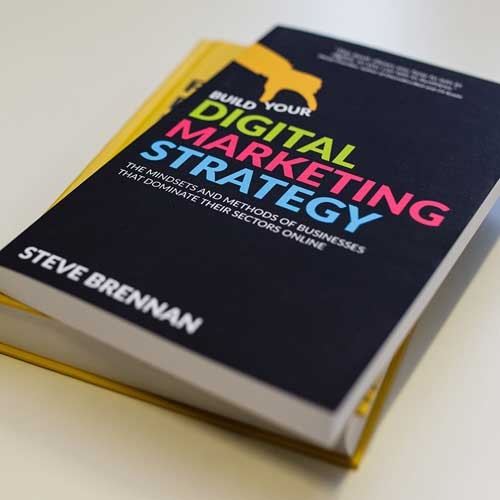
3 minute read
We're often asked questions around how big a marketing budget should be and how it might be allocated.
It's a hot topic at certain times of year and in-house marketers often seem not to have much of a benchmark to work with other than the status quo within their company.
In fact, they sometimes speak of anxiety around breaking that status quo, and some tell us they feel some pushback from above if they try to modernise or reshape their budget, by introducing new ideas or breaking with company tradition.
But marketing teams operate in a landscape that evolves every year so budgets should look different year-on-year too.
On one hand digital itself is constantly evolving, with new tactics and trends every year (video, ABM, and LinkedIn are all hotter than ever right now for example).
On the other hand, competitors are constantly evolving, changing their messaging and tactics, and we obviously have to adapt when the playing field on which we compete is changing.
We'd all like there to be a simple formula for calculating a marketing budget and there isn't of course, but there are some guidelines, and there are always ways we can be smarter with the budget we have.
Here at Bespoke our team often works with service and manufacturing businesses. Marketing budgets are often around 10% of turnover with the former, and 5% with the latter, or thereabouts (if you don't know your business' turnover ask your CFO or MD to see how your marketing budget compares).
There's variation from business to business depending on where the business is in its evolution. A growing business or one that is repositioning or catching up will often invest more than one that is consolidating and aiming to retain its current customer base.
Also, older businesses often have budgets focused around more traditional marketing methods and are not yet fully bought into digital, surprising though that always is.
Again, obviously the answer has to be that it depends and only workshops or some investigation with third-parties can fully answer that question.
But there are questions you might like to consider as you plan your budget, such as:
Or in other words, how smart is our spending? Are we investing in marketing assets that will work for us for months or years? Or are we writing blog after blog or social post after social post hoping that adding one more to the pile will change results? Sector leaders normally have good focus on developing evergreen marketing assets.
Google's 7-11-4 theory says that customers spend an average of 7 hours in total researching a product or service, on 11 different occasions, across 4 different channels before feeling confident enough to buy. Is your budget geared towards this cross-channel trend? Are marketing messages consistent across those channels?
It used to be that websites sat in relative isolation, being found through Google searches and being the sole channel where a potential customer would research you. Now they're the hub where an interested customer will eventually arrive and decide whether or not to contact you. Investment every month to nudge up your conversion rate results in permanent increases in enquiry rates.
More successful marketing campaigns speak only of 2 or 3 simple messages or themes, and in some cases, literally never anything else. We see this approach work in elections, on the high street and online. So does your budget include some time and resource to develop, test and refine super-clear messaging and branding that is consistent and that cuts through in noisy marketplaces?
Almost without exception, the in-house teams that are happy and consistently delivering on their objectives are those who invest in getting out of the office regularly for conferences, training or for mentoring and collaboration with their agency. Even better if you get to events where you can hear what other in-house teams are doing.
Finally, as you plan which tactics to invest in, it's likely you'll do some cost-benefit analysis, perhaps using a matrix like the one shown below, to establish how much you put into each tactic, and how much you expect to get back.
When the team here at Bespoke has done this kind of exercise with in-house marketers we've found that their instinct is often to consider each possible tactic in isolation, when in reality it doesn't quite work that way.
As Google's 7-11-4 theory suggests, customers learn to trust us now across a range of channels over a period of time, so attribution of leads or sales to a single channel is at best difficult or unreliable, and often it's actually impossible.
Also of course, the time and costs of a particular channel change depending on what we are doing elsewhere. If we invest in a richer piece of content such as a white paper or other piece of research, this can be chopped up into 100s of pieces of content over a period of months, so the costs of content production on other channels decreases.
Whilst there is no single formula for planning a marketing budget, being open-minded, challenging the status quo and taking time out to think laterally around what could really impact your business opens up the possibility of those lightbulb moments that push certain businesses ahead of others in any given sector.
Certainly we rarely see the businesses that do the same every year outperform those who are evolving, trying out new ideas and investing in marketing assets for the long-term.
Here to advise with your new website design, marketing strategy or campaign ideas.

Steve Brennan is Co-founder and CEO of Bespoke, and author of the Amazon #1 bestseller, Build Your Digital Marketing Strategy
Get the book
Free download






accredited agency


41 sec
If you're looking for any of the following, we could be well-matched:


We use cookies to enhance your browsing experience, personalise ads, and analyse our traffic. By accepting, you consent to our use of cookies. For more information, please read our Privacy Policy, and read more about how Google uses your information.